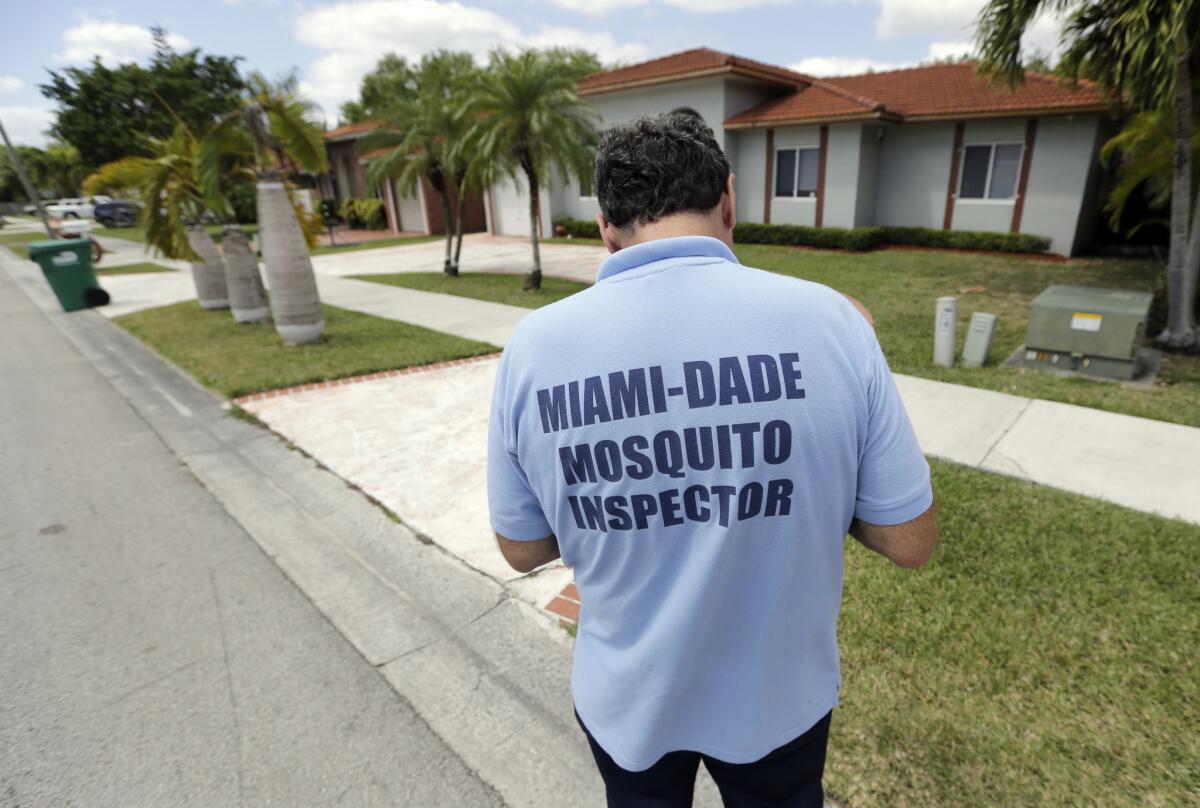Editorial: Zika will only get ‘scarier’ if lawmakers are stingy with emergency funds

An inspector with a county mosquito control unit walks door to door while responding to a complaint about mosquitoes in Miami, Fla. on April 12.
The link between the Zika virus and microcephaly in babies was confirmed this week by scientists at the Centers for Disease Control and Prevention, the latest in a series of increasingly troubling revelations about the mosquito-borne disease.
First, it’s not just mosquito-borne; it can also be passed among humans via sexual contact. That’s alarming because an outbreak can really get rolling when a pathogen can spread without the help of animals or insects. Since symptoms are so mild, if present at all, many carriers of the virus may pass it along without realizing they were infected.
The more scientists learn about Zika, the worse the news gets for the next generation. It is a factor in premature birth, blindness and other defects in babies when their mothers are infected during pregnancy. And the mosquito responsible for most of the spread of the infection ranges more widely in the U.S. than thought just weeks ago: 30 states rather than just 12. As the CDC’s Anne Schuchat put it this week: “This virus seems to be a bit scarier than we initially thought.”
Yes, it certainly is. Zika infections are mounting quickly in the Americas (more than 800 have been reported on U.S. turf alone, about half in Puerto Rico), and those numbers are sure to explode once mosquito season gets going. More federal funding is crucial to vaccine development and other programs to stop the virus’ spread.
The new information about Zika should weigh heavily on Congress when it decides whether to allocate $1.9 billion in emergency funding, as requested by the CDC and the National Institute of Allergy and Infectious Diseases. Lawmakers balked when President Obama first asked for the money in February. But that was before we understood just how insidious this seemingly mild-mannered flavivirus can be.
Follow the Opinion section on Twitter @latimesopinion and Facebook
More to Read
A cure for the common opinion
Get thought-provoking perspectives with our weekly newsletter.
You may occasionally receive promotional content from the Los Angeles Times.










